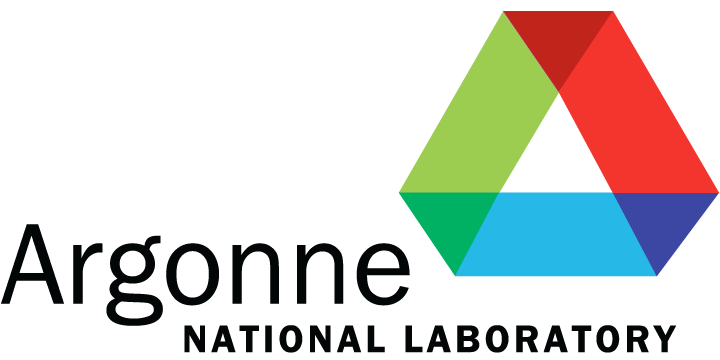Leon Lederman was one of a kind.
This is the repository for all things C2ST. You can learn with videos of our past events, read articles concerning cutting-edge research and development in Chicago and elsewhere that will change our lives, check out C2ST in the news, and more! Use the Filter Media options below to browse C2ST’s content and discover something new!
We graciously thank The Brinson Foundation for their generous sponsorship of the C2ST Science Communication Internship in 2021-2024. As a result, an incredibly talented group of diverse STEM undergraduate and graduate scholars at area colleges and universities researched and developed over 125 blogs.* Enjoy-If you like, please share!
*As of 7.1.25
By Jordan Greer
Are you a tea enthusiast or coffee connoisseur? A common debate in labs, offices, and possibly within your own home, people usually prefer one over the other to start their day. In fact, tea and coffee are the most commonly consumed non-alcoholic beverages in the world. But what leads us to choose one pick-me-up over the other, and how much of it we drink? While we may attribute our preferences to how we’re raised, recent research shows our choice of brew may also be linked to our DNA.
First, let’s consider what makes coffee and tea different. Both contain bitter compounds, although coffee contains a higher amount. However, their most noteworthy component is caffeine; coffee has roughly twice the amount found in black and green teas. Caffeine itself, though, is nearly tasteless – well, to most of us.
Continue reading “Coffee or tea? One cup or three? Your genes may decide.”
Originally published at: https://news.fnal.gov/2019/09/celebrate-the-extraordinary-life-of-nobel-laureate-and-former-fermilab-director-leon-lederman-in-chicago-on-sept-25/
By JARED SAGOFF
Originally published at: https://www.anl.gov/article/argonne-discovery-offers-new-way-to-coat-nuclear-materials
Inside an operating nuclear reactor, the environment is extreme, as reactor components are exposed to a combination of intense radiation and heat as well as chemically reactive coolant. That’s why, in order to operate reactors safely, scientists need to design their components with materials that can withstand these conditions.
Researchers at the U.S. Department of Energy’s (DOE) Argonne National Laboratory have made a pivotal discovery by taking a technique originally developed for the semiconductor industry and using it as a way to coat nuclear materials. This technique, called atomic layer deposition (ALD), forms the basis of new methods to protect nuclear fuels and materials from direct exposure to the reactor’s hostile environment.
“We are pioneering the use of ALD for nuclear applications,” Argonne nuclear engineer Abdellatif Yacout.
Continue reading “Argonne discovery offers new way to coat nuclear materials”

Argonne National Laboratory is accelerating more than protons these days. Through its Chain Reaction Innovations (CRI) entrepreneurship program, Argonne is accelerating the development of new businesses that are tackling the challenges of producing and conserving energy with new, cost effective and environmentally-sustainable technologies. Argonne is located in Lemont, Illinois, west of Chicago. It is owned by the U.S. Department of Energy’s (DOE) and operated by the University of Chicago. It is one of the largest and most scientifically diverse research centers in the world. The CRI program is supported by the Advanced Manufacturing Office within DOE’s Office of Energy Efficiency and Renewable Energy.
This summer, with the first four startups graduating from the program, CRI innovators have raised about $12.4 million in funding as of Aug. 1, 2019. Out of that total, more than $5 million has come from private equity sources, and the rest has some from various organizations – including DOE – that offer open funding opportunities.
By Lily Yu
Originally published at: https://better.net/chicago/philanthropy/get-involved/give-time-things-support-ways-give-back-around-chicago/
Your family is probably soon headed back to a school-year schedule, but don’t let the busyness of a new academic year leave you without time for others. Consider adding these volunteer and give-back opportunities to your calendar.
This organization knows that “all children deserve to reach their intellectual potential.” That’s why they offer one-on-one tutoring to kids in pre-K through 2nd grade at underserved schools. Reading Power is increasing its program and is in need of more tutors. Learn more about becoming a tutor and fill out the Tutor Application.
If you have an extra hour to spare, sign up for a repack session and take the time to repack large quantities of food into individual servings so that it can be redistributed to food pantries for those in need. If you’re feeling especially competitive, have a friendly competition between you and your friends to see who can repack the most within the given time. You’ll be surprised to see how fast time flies and how much can get accomplished.
Continue reading “Give Time, Things, Support: 7 Ways to Give Back Around Chicago”
By Lauren Robinson
Are we alone?
If you’re wandering around the chambers of the Deep Mine Microbial Observatory, what was once a gold mine in South Dakota, it might feel as though you are — until, perhaps, you take a fluid sample from a borehole in the tunnel wall, run it under a microscope and observe one of the droplets teeming with microbial life.
Caitlin Casar, a third-year Ph.D. student at Northwestern University, says scientists can’t yet answer the big question: Are we alone in the universe?
“I hope that there is life on another planet, but whether or not it’s probable, I don’t think anybody can really say,” she said.
Continue reading “Subsurface biofilms could hold clues to alien life, astrobiologists say”